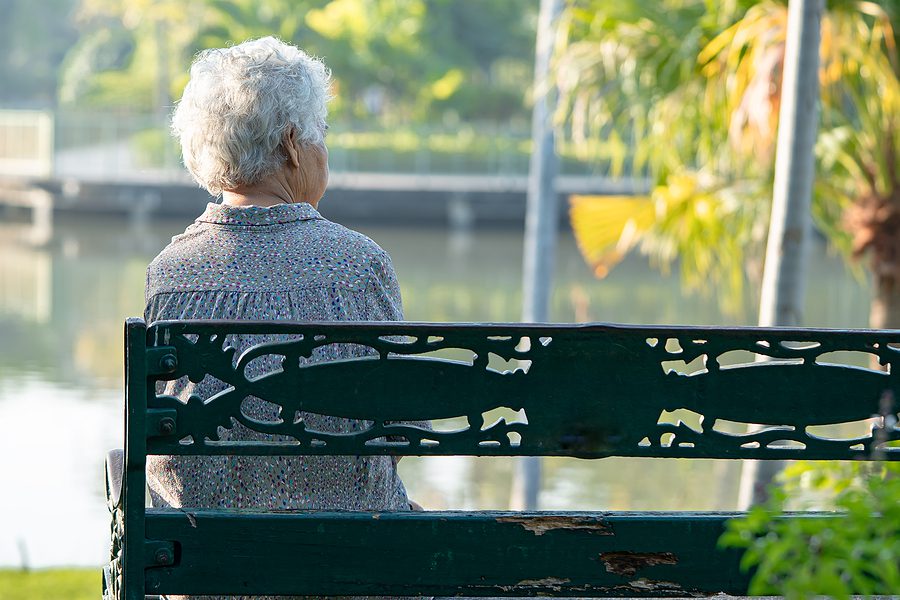The days are getting shorter as winter approaches. And with the changing of the seasons, comes seasonal depression. Depression is a serious issue that is often overlooked in older generations. This article will discuss how to identify signs of depression, and how to help your loved one with their seasonal depression.
What is Seasonal Depression?
Seasonal Depression, also known as Seasonal Affective Disorder (SAD), is a condition that commonly affects individuals during the late Fall and Winter months. This is a type of depression that is classified by its onset time, and the period that it affects the individual. Generally, it is caused by a combination of Vitamin D deficiency and isolation. In the winter, shorter and colder days mean less time outside, and less time interacting with others. Because isolation and limited time in the sun are already common for many seniors, a further reduction during the winter can make developing SAD easier.
Symptoms of Seasonal Depression
Seasonal Affective Disorder has many similar symptoms to other forms of Depression. Common symptoms of SAD include:
- Overwhelming feelings of sadness or hopelessness
- Mood swings and anger
- Loss of interest in usual activities
- Changes in appetite
- Excessive weight changes
- Sleep disturbances
- Tiredness and fatigue
- Anxiety
- Slower movement
- Wanting to stay home, or in bed
- Cognitive deficiencies (memory, focus, concentration)
- Thoughts or acts of self-harm or suicide
- Unexplained physical pain, such as back pain or headaches
Unfortunately, many of these symptoms can occur as a part of aging. They can also be common side effects of medications. Because of this, it is common for their Seasonal Depression to go untreated. You may need to talk with your loved one or their doctor to see if they may be suffering from seasonal depression.
Helping Seniors Manage Their Depression
If your aging loved one is suffering from depression, there are ways that you can help them. While these tips will likely not “cure” their depression, they may help them cope with their symptoms. Spend more time with your loved one. Get them outside more. This can be difficult in the Winter months, but try to plan some activities together. Even a family movie night can be a good way to spend time with your elderly loved one, and help them lift their spirits. Encourage them to explore new activities or hobbies that might make them feel less depressed.
Lastly, staying active can be an effective method of reducing feelings of depression. Consider helping them sign up for a senior fitness class, such as yoga or tai chi. Check with your loved one’s doctor before making any serious changes to their exercise.
Vitamin D and SAD
Vitamin D can be an important part of reducing feelings of SAD. As such, help your loved one get out more during the day. Be sure to bundle them up, and stay safe around the ice, or slippery fallen leaves. Vitamin D-rich foods can also help. This can include salmon, sardines, tuna, fortified dairy products, and fortified orange juice.
An increase in Vitamin D from foods or supplements may interact with your loved one’s medications. Be sure to check with their doctor before making any major changes to your loved one’s diet or nutrition. Only offer supplement use if their doctor recommends it.
Help from their Doctor
Your loved one’s doctor can help determine if their symptoms are from depression or the side effects of their medications. There are different options that your loved one can explore in terms of treatment. This may include therapy, increasing vitamin D intake, and more.
Seasonal Affective Disorder and Home Health Aides
One of the most important jobs of our Home Health Aides is to provide support and companionship to our clients. Having a home health aide to assist your loved one during their day can help reduce feelings of isolation. This can be an important factor in reducing feelings of depression. Their home health aide can also help with meal preparation, trips to the doctor, light housekeeping, and more.
Safe Harbor Healthcare Services does not provide medical, healthcare, or financial advice via articles. This material has been prepared for informational purposes only. It is not intended to provide, and should not be relied on for medical advice.
Safe Harbor Healthcare Services has been providing excellent home care on Staten Island since 1967. Our services help the elderly and disabled live safely and independently; while giving their families the peace of mind they need. For more information contact us by clicking here, or by calling (718)-979-6900.

